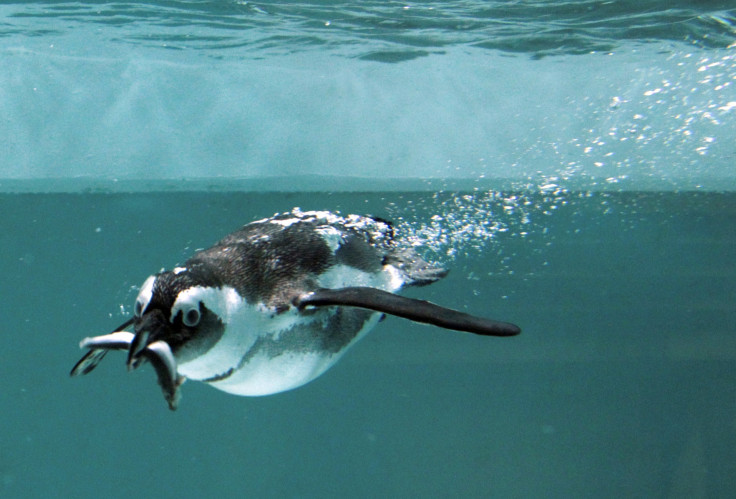Penguins Lost Ability To Taste Fish Millions Of Years Ago: Study

A new study, based on genome and relevant gene sequences, has revealed that penguins lost three of the five basic vertebrate tastes -- sweet, bitter and umami -- more than 20 million years ago and never regained them. The study suggests that although these flightless aquatic birds love eating fish, they probably cannot taste them.
Scientists, who consider the loss of umami taste for a fish-eating bird perplexing, believe that the sensory changes in penguins could be linked to ancient climate-cooling events in Antarctica. According to study leader Jianzhi “George” Zhang, a professor of ecology and evolutionary biology at the University of Michigan, a leading hypothesis is that the taste receptor genes in penguins were lost after cold Antarctic temperatures interfered with taste perception.
“Penguins eat fish, so you would guess that they need the umami receptor genes, but for some reason they don't have them,” Zhang said in a statement. “These findings are surprising and puzzling, and we do not have a good explanation for them. But we have a few ideas.”
The latest study, published in the journal Current Biology on Monday, was prompted by a previous research by scientists at a genomics institute in China. The researchers at the institution had sequenced genomes from Adelie and emperor penguins, but could not find some of the taste genes. They approached Zhang to determine whether the missing genes were the result of an evolutionary process.
Zhang and his team of researchers took a closer look at the data, while also analyzing tissue samples from chinstrap, rockhopper and king penguins. They found that all the five species do not have functional genes for the receptors of sweet, umami and bitter tastes.
The researchers also studied non-penguin birds, including egrets, finches, flycatchers, parrots, macaws, falcons, chickens and mallards, and found that all of these birds contained the genes for umami and bitter tastes, but lacked receptors for the sweet taste.
Penguins separated from tubenose seabirds around 60 million years ago, while the major penguin groups separated from one another about 23 million years ago.
The taste lost, on the other hand, likely occurred during a span of 37 million years that witnessed periods of dramatic climate cooling in Antarctica, according to Zhang, who believes that a protein called “Trpm5” is responsible for the penguins’ inability to taste fish.
Previous studies on mince have revealed that Trpm5, which is required to send sweet, umami and bitter taste signals to the nervous system in all vertebrates, does not function well at cold temperatures.
According to scientists, penguins use their tongues primarily for catching and holding slippery fish or other prey. However, they are not sure which came first, the anatomical adaptations or the sensory changes.
“Their behavior of swallowing food whole, and their tongue structure and function, suggest that penguins need no taste perception, although it is unclear whether these traits are a cause or a consequence of their major taste loss,” Zhang said.
© Copyright IBTimes 2025. All rights reserved.





















